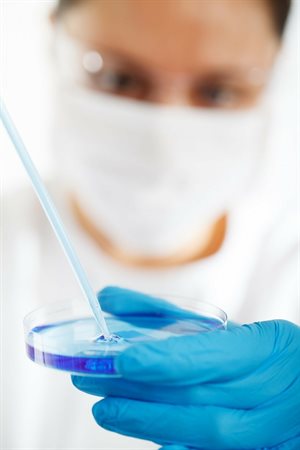Christmas Research Meeting
 The aim of the focused research meeting on the 9th December 2020 was to highlight some recent studies by colleagues in the Versus Arthritis Pain Centre. Talks included an investigation of the impact of covid 19 infection on healthcare workers including seroconversion rates, ethnicity and transmission (Prof Ana Valdes) and on inflammatory responses (James Turnbull), Recent advances in two core areas of research were also introduced, using and providing data to the UK BioBank (Dr Phil Quinlan) and novel tissue based metabolite profiling (Dr Dong-Hyun Kim).
The aim of the focused research meeting on the 9th December 2020 was to highlight some recent studies by colleagues in the Versus Arthritis Pain Centre. Talks included an investigation of the impact of covid 19 infection on healthcare workers including seroconversion rates, ethnicity and transmission (Prof Ana Valdes) and on inflammatory responses (James Turnbull), Recent advances in two core areas of research were also introduced, using and providing data to the UK BioBank (Dr Phil Quinlan) and novel tissue based metabolite profiling (Dr Dong-Hyun Kim).
How to build FAIR infrastructure, lessons from the UK Biobanking community (Dr Phil Quinlan): introduced the principles of FAIR (Findable, Accessible, Interoperable, Reusable) and how application of this principles will benefit the future research agenda across the UK. Within this framework the role of the UKCRC Tissue Directory and Coordination Centre to “maximise the value of human tissue samples and resources while minimising duplication of effort” was discussed and how this required good characterisation of tissue samples, which are readily linked to accurate clinical data. It was emphasized that to achieve this goal the sample collections need to be easily discoverable and accessible for use in high quality, ethical research. Health Data Research UK co-connect was also introduced, which aims to transform the UK’s COVID-19 response by making COVID-19 related datasets FAIR) and providing expert data engineering, enabled by HDR UK, to support and catalyse their responsible use in research and innovation. The presentation concluded with a summary of what is required in the future to achieve success, including that FAIR can not be retrospective action, datasets and samples should not be the ‘assets’ of research groups. A national infrastructure that transforms the landscape is needed to achieved this, and this needs Universal acceptance by the data discovery community.
Novel tissue-based metabolite profiling: Can it be employed for osteoarthritis studies? (Dr Dong-Hyun Kim): introduced the use of tissue microarrays followed by LESA-MS/MS analysis for untargeted metabolomics and the potential application to studies of osteoarthritis mechanisms. The application of this method to the study of lipidomics in small sample sizes whilst preserving the tissue architecture, such as those collected in paediatric cancer samples, was given as an exemplar of the utility of this approach. The analysis was able to identify several potentially affected metabolites and genes. The second part of the presentation focused upon the study of single macrophages using 3D OrbiSIMS imaging, highlighting that this approach identified a number of metabolites altered in M1 macrophages versus M2 macrophages.
Changes in serum levels of Omega-3 fatty acids and their metabolites in hospitalised COVID-19 patients. (Jamie Turnbull): discussed a recent study where a pre-existing LC-MS/MS lipidomic workflow was repurposed during the pandemic, to analyse serum samples collected from hospitalised COVID-19 patients. The levels of omega-3 fatty acids and their metabolites, which are involved in the pro-resolution phase of the inflammatory response, were quantified and compared to levels of age-matched controls across different age groups. The data shown highlighted increased levels of omega-3 metabolites in COVID-19 samples compared with controls, as well as a change in the relationship between levels of metabolites and age between the two cohorts. It was also shown that higher levels of omega-3 fatty acids and their metabolites were associated with higher levels of anti-nucleocapsid binding, a measure of the adaptive immune response, which was also measured in these samples. Future work from this study involved looking at pro-inflammatory omega-6 fatty acids which were also measured, and a follow-up study analysing serum samples from asymptomatic COVID-19 positive healthcare workers.